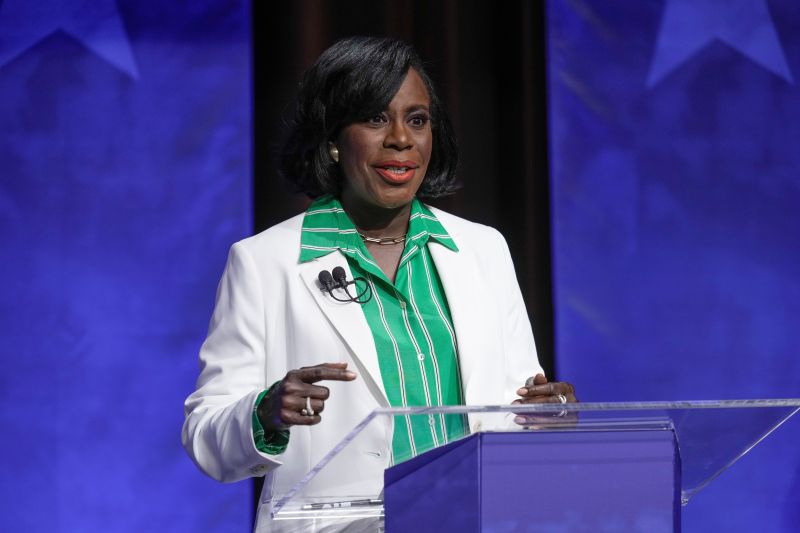Philadelphia Approves $800 Million Housing Plan in Bold Move to Tackle Citywide Crisis
A Milestone Moment for Philadelphia’s Housing Future
After marathon negotiations that stretched into the early hours over two days, Philadelphia’s City Council has moved one step closer to finalizing a sweeping $6.8 billion city budget — one that includes a historic $800 million investment aimed at transforming the city’s housing landscape.
This major win comes under the leadership of Mayor Cherelle L. Parker, whose Housing Opportunities Made Easy (H.O.M.E.) initiative now has the green light to move forward. The plan aims to create or preserve 30,000 housing units across Philadelphia, offering a robust response to the city’s pressing housing affordability crisis.
Mayor Parker's Vision Gets Backing from Council
Mayor Parker’s ambitious housing blueprint was at the heart of the budget talks. Despite complex back-and-forth discussions behind closed doors, the City Council ultimately aligned with Parker’s strategy — including her proposals for tax reform and borrowing authority.
“This budget makes bold and necessary investments to ensure Philadelphia becomes the safest, cleanest, and greenest major city in America,” Parker stated following the preliminary approval.
The budget package not only advances the mayor’s flagship housing program but also includes modest cuts to wage and business taxes, part of a longer-term plan to stimulate local economic growth and signal that Philadelphia is, as Council members echoed, "open for business."
Council Leadership Ensures Accountability
A central point of contention during negotiations was how the newly authorized $800 million in housing bond funds would be managed and monitored. Council President Kenyatta Johnson, alongside other lawmakers, pushed for stronger legislative oversight over the allocation of funds.
An agreement was finally reached Thursday afternoon, ensuring a balanced power structure for reviewing how bond proceeds are distributed. The compromise establishes a four-member project review team—two appointed by the mayor and two by Council—tasked with overseeing changes to annual spending plans. If any adjustment exceeds 10% of the yearly H.O.M.E. budget, formal legislative approval will be required.
Additionally, Council will receive quarterly updates on how each district benefits from H.O.M.E.-related expenditures, further enhancing transparency.
“We’re working in partnership with the administration,” said Johnson. “This is a landmark accomplishment as we tackle Philadelphia’s housing crisis together.”
Streamlined Path for Land Development
In another significant move, Mayor Parker’s administration secured approval to fast-track the development of 1,000 city-owned parcels. These properties, often tied up in slow-moving bureaucratic processes, can now be developed without the need for separate legislation for each sale—paving the way for faster housing construction.
This streamlined process removes long-standing barriers and is expected to be a game-changer in accelerating affordable housing development in underserved neighborhoods.
Council Reaction Shows Range of Views
While much of the Council rallied around the budget and housing initiatives, not all members were in agreement.
Councilmember Kendra Brooks voted against all tax and budget-related legislation, expressing concern that the budget fails to meet the most critical needs of vulnerable communities. In a joint statement with Councilmember Nicolas O’Rourke, she cited a lack of funding for reproductive healthcare, mental health crisis response teams, and other essential services.
Despite these objections, several progressive voices, including Councilmembers Jamie Gauthier and Rue Landau—both known for prioritizing affordable housing—threw their support behind the housing bond and even backed the tax cuts. As co-chairs of the Housing Committee, they emphasized their commitment to collaborating with the mayor and Council leadership to ensure the housing plan delivers for the city’s most vulnerable.
“We are focused on building and preserving safe, stable, and affordable housing—especially for residents who face the greatest burdens in this housing crisis,” they shared in a statement.
The legislative committees advanced the proposals swiftly on Thursday through voice votes, and the final roll-call vote is expected at the next full Council meeting. Once ratified, the budget and related legislation will take effect before the new fiscal year begins on July 1.
For Mayor Parker, this marks a defining victory in her second budget since taking office. For Philadelphia, it sets the stage for a transformative period focused on housing stability, economic revitalization, and community resilience.
As implementation begins, the H.O.M.E. initiative will be watched closely—not only as a model for addressing local housing challenges but as a bold experiment in balancing visionary leadership with structured accountability.

COMMENTS (0)
Sign in to join the conversation
LOGIN TO COMMENT